Results for: Jason Delborne

Towards Responsible Research and Innovation with Jason Delborne and Khara Grieger | MBTP Faculty Mentors
In this workshop, we will explore the framework of “responsible research and innovation,” which offers a lens for thinking about the social and political context of science and the practices that can promote responsibility.

Jason Delborne
Jason Delborne Professor and Interim Director of Science, Policy, and Society; University Faculty Scholar; GES Center Executive Committee Member Forestry and Environmental Resources, College of Natural Resources Contact Faculty page: https://cnr.ncsu.edu/directory/jason-delborne | Lab page: https://sites.google.com/ncsu.edu/jason-delborne…
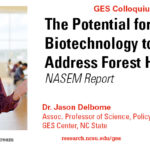
GES Colloquium | Jason Delborne: The Potential for Biotechnology to Address Forest Health
GES Colloquium, 2/19/18 – Jason Delborne | In 2018, the National Academies of Sciences, Engineering, and Medicine formed a committee of experts to explore the potential for biotechnology to address forest health. The committee focused on threats to forest health from pests and pathogens and considered challenges and opportunities of biotech trees (genetically engineered or gene-edited) as solutions. NASEM released this report in January 2019, and Jason participated in the public release of this report in Washington, DC and a session at the AAAS annual meeting to summarize findings of the report.

Jason Delborne appointed to National Academies Forest Biotech Study Committee
Dr. Jason Delborne has been appointed to the National Academies of Sciences provisional committee on The Potential for Biotechnology to Address Forest Health, or Forest Biotech Study. The study will be looking at the potential uses of biotechnology to mitigate threats to forest tree health, identify ecological, ethical, and societal implications of using this technology in forests, and develop an agenda to address knowledge gaps in its application.
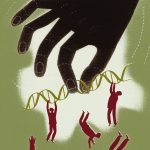
Jason Delborne addresses CRISPR gene drives controversy in NYTimes, Quanta, and Gizmodo
GES Faculty member Jason Delborne addresses two controversial new papers in several articles published this week on the safety of field testing CRISPR gene drives in the wild. With links to articles in New York Times, Quanta, Gizmodo and The Atlantic.
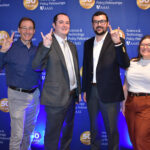
Delborne Awarded Prestigious AAAS Science & Technology Policy Fellowship
The American Association for the Advancement of Science (AAAS) is pleased to announce that Dr. Jason Delborne, Professor of Science, Policy, and Society in the Department of Forestry and Environmental Resources and the Genetic Engineering and Society Center, and Dr. Morgan DiCarlo, Dr. William Casola, and Mr. William Murray MNE, North Carolina State University alumni, as members of the 51st class of the Science & Technology Policy Fellowships (STPF) program.

Godwin and Delborne discuss CRISPR and ethics at NC Museum of Science
GES faculty John Godwin and Jason Delborne were at the NC Museum of History on 9.28.17 discussing genetic biocontrol of pest populations, such as CRISPR gene drives to eliminate invasive rodents from islands to protect endangered seabirds. See PowerPoint presentation & livestream video (including slides).

Scientific American article on public acceptance of CRISPR features Delborne and Kuzma
“Without transparency, we might see a kind of hyperpolarization,” says Jason Delborne, a professor of science, policy and society at North Carolina State University. Concerned groups will feel marginalized, and advocates won’t receive critical feedback needed to improve design and safety. “This puts the technology at risk of a knee-jerk moratorium at the first sign of difficulty,” he notes.
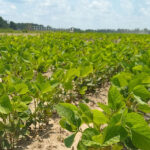
CALS News – Using Leaf Fungi to Improve Crop Resilience
Mollie Rappe, June 29, 2020 | Jason Delborne, a researcher with the Genetic Engineering and Society Center and the College of Natural Resources, will lead the efforts to assess public opinion and analyze the potential regulatory pathway for techniques to introduce beneficial plant fungi to crops.

2018-19 University Faculty Scholars Named
NC State’s 2018-19 class of University Faculty Scholars was announced today. These 20 early- and mid-career faculty [including GES Center Executive Committee Member, Jason Delborne] receive this designation due to their significant academic achievements and contributions to NC State through their teaching, research and community engagement.
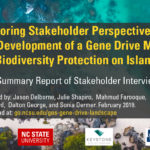
Report: Stakeholder Perspectives on Gene Drive Mice for Biodiversity Protection on Islands
Jason Delborne, February 20, 2019 | This article reviews the current state of gene-editing regulation for crops, illuminating the ways in which technology developers are repeating practices that may lead to the public and ethical failures of the first generation genetically engineered crops, and argues that the contentious socio-political history of genetic engineering will repeat itself for gene editing if these continue.
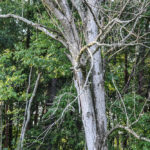
Can genetic engineering save disappearing forests?
Jason Delborne, January 18, 2019 | Forests in the US face many threats: climate change, invasive species, pests and pathogens. Could genetically engineering trees make these plants more resilient?”

Funders respond to NASEM Gene Drive study
Funders of the National Academy of Sciences consensus study Gene Drives on the Horizon (2016) have published a response to the report in the December 2017 issue of Science.
The study summarized “current understanding of the scientific discoveries related to gene drives and their accompanying ethical, legal, and social implications,” and was co-authored by Dr. Jason Delborne, associate professor of science, policy and society in the College of Natural Resources and executive committee member of the GES Center.
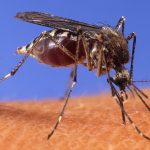
Keeping Up With the Fast-Moving Science of Gene Drives
NC State’s Jason Delborne, an expert in science and technology policy and public engagement, answers questions about the emerging science of gene drives. Delborne helped develop a National Academies report on gene drives and unveil it in Washington, D.C.
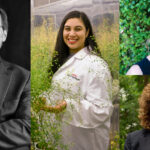
NC State Named a Fulbright Top Producing Institution
NC State has been recognized as one of the universities with the highest number of students, faculty and administrators selected for both the U.S. Fulbright Student and Scholar Programs, including three GES faculty members and an AgBioFEWS Fellow in 2023–24.